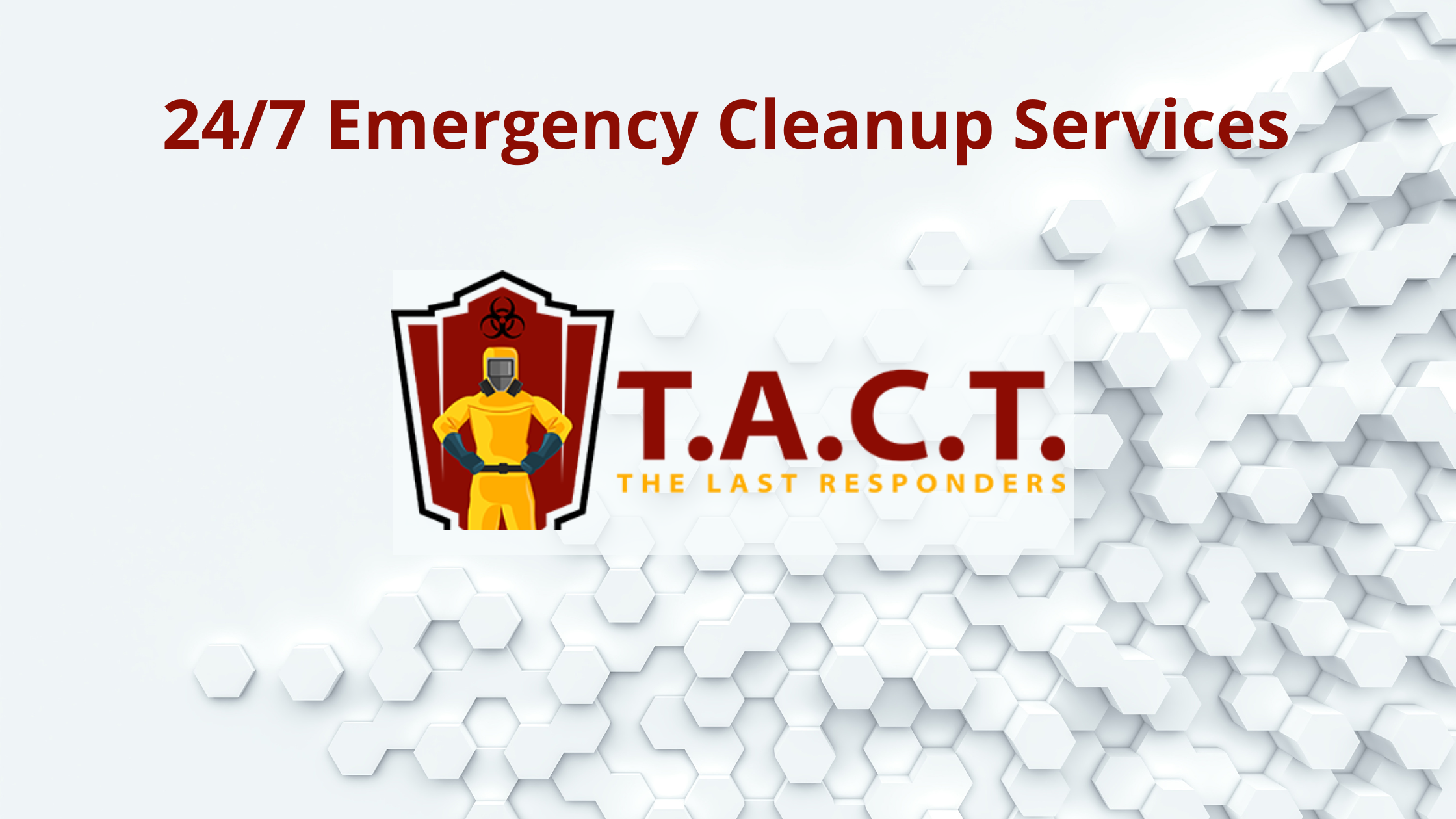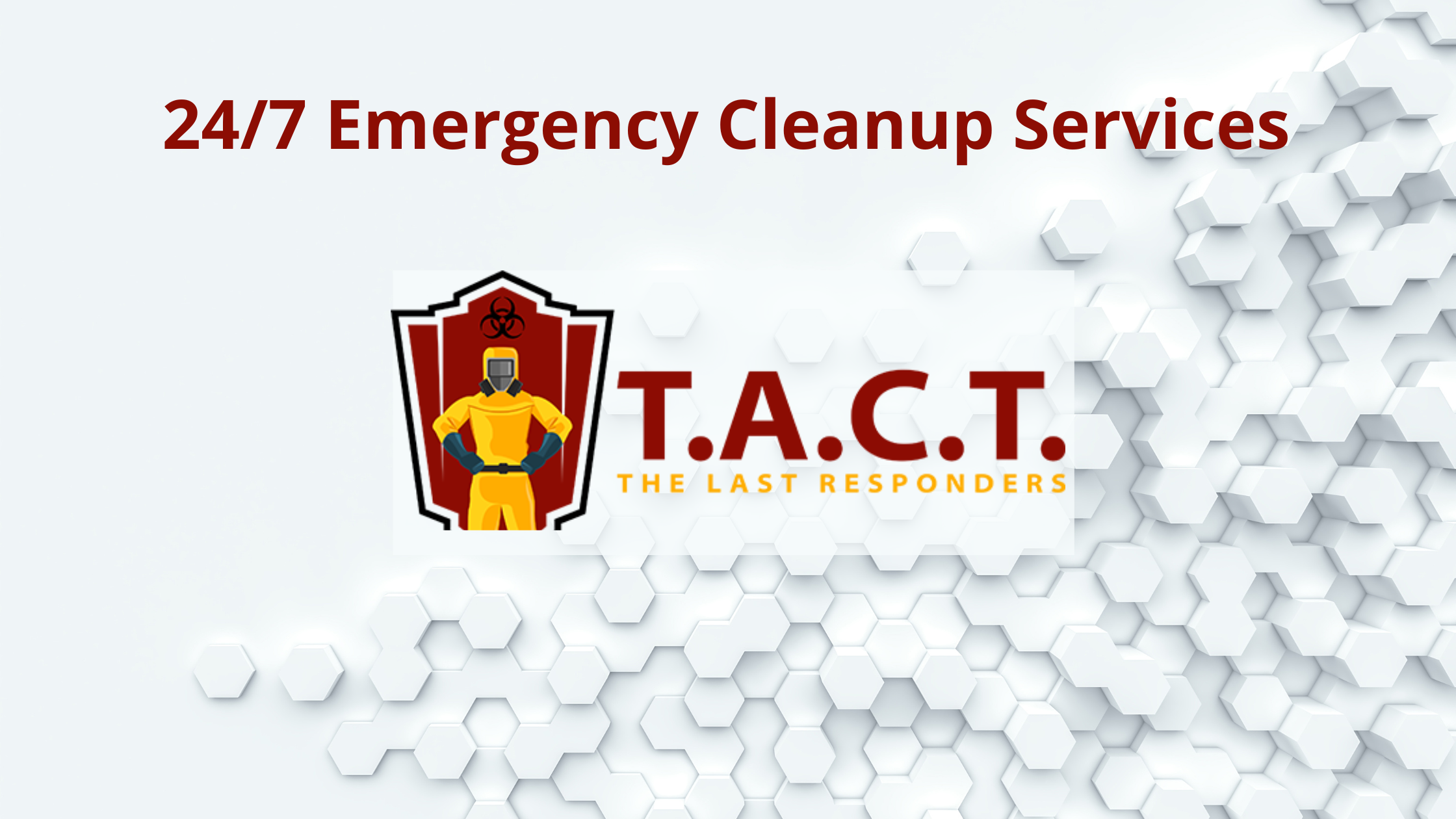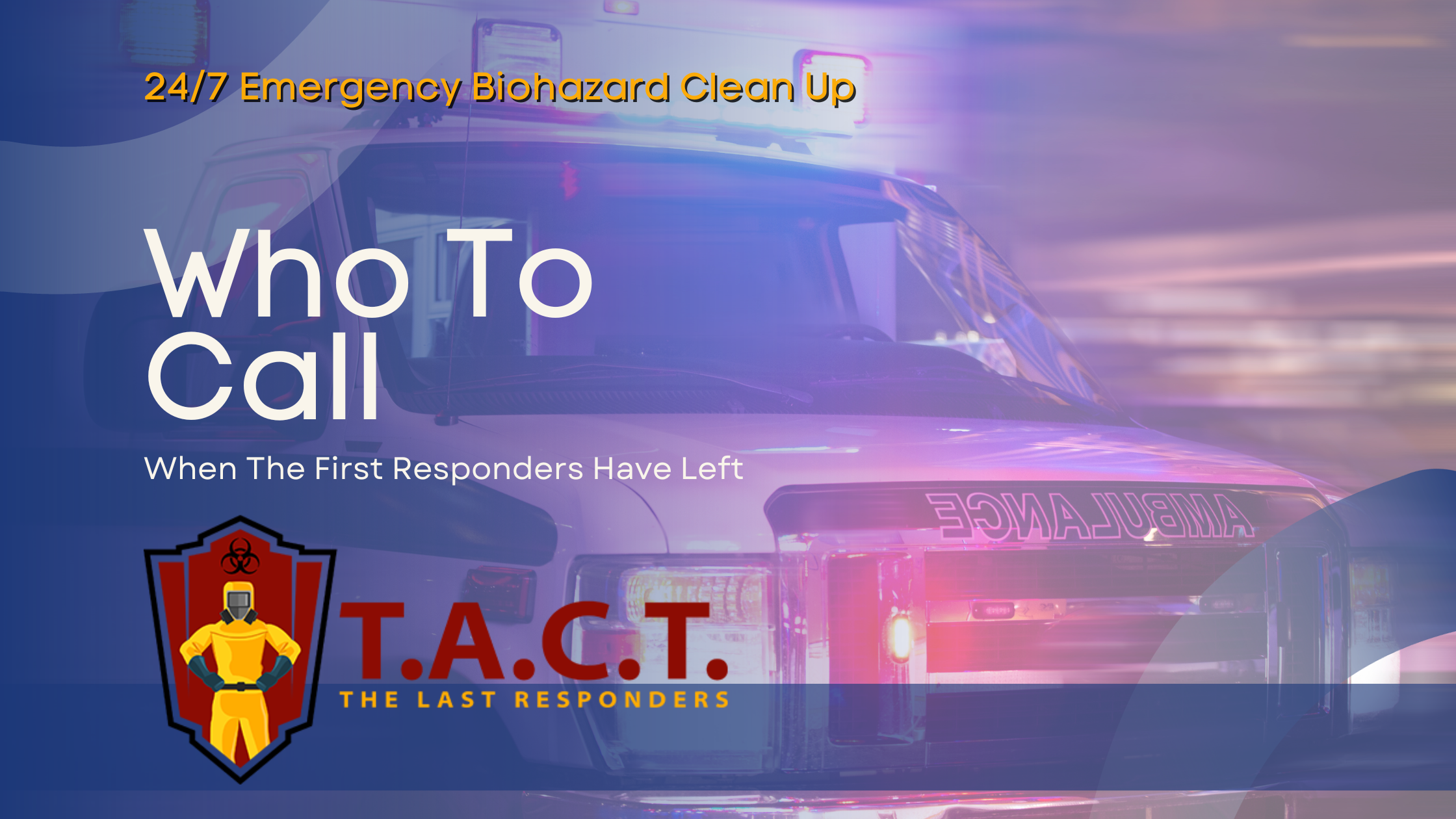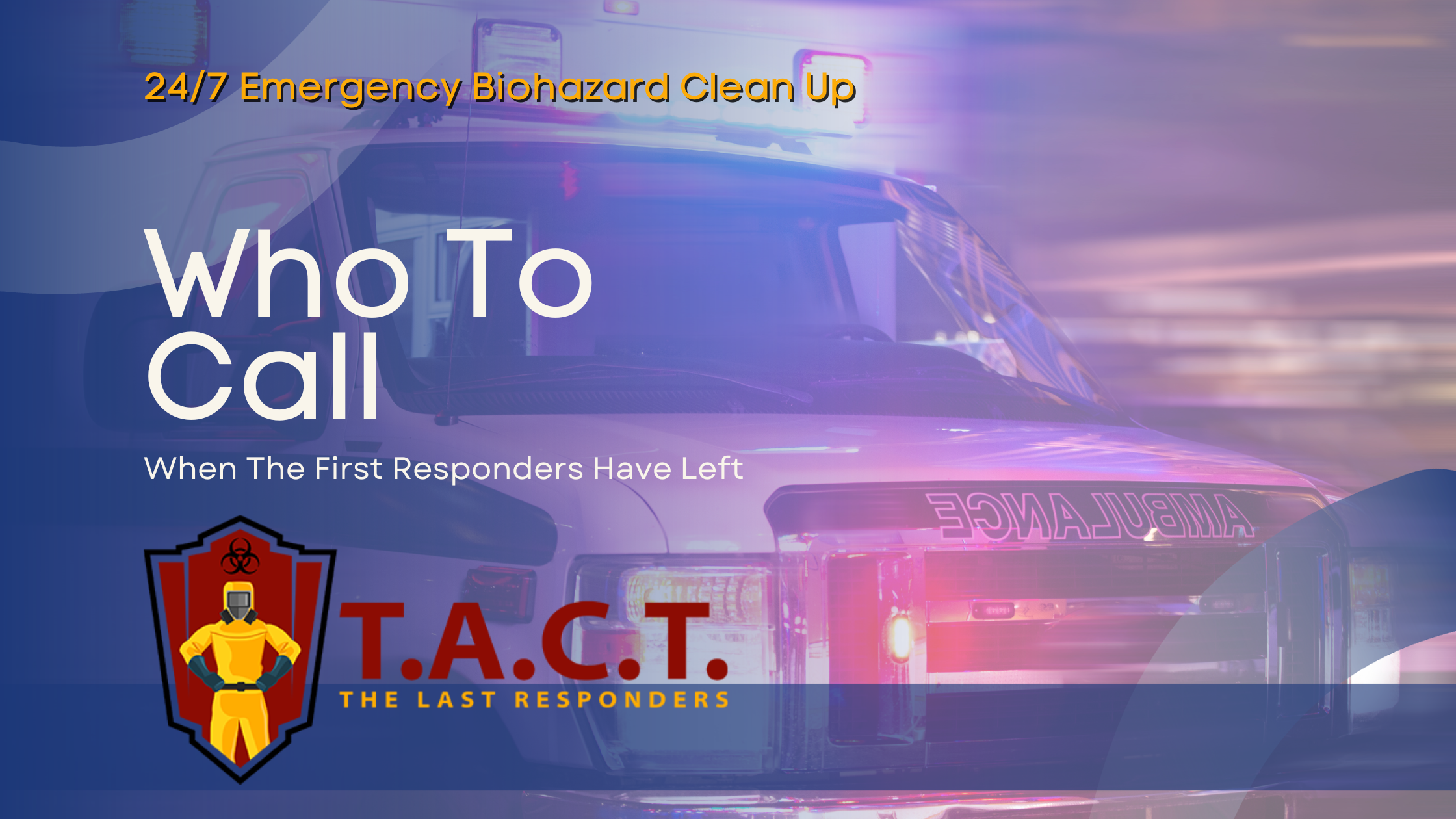Crime Scene Cleanup Cost Guide: What to Expect & Budget For

Understanding Crime Scene Clean Up Cost: What to Expect and Budget
When tragedy strikes and a crime scene requires professional cleaning, property owners face not only emotional trauma but also unexpected financial responsibilities. Crime scene cleanup is a highly specialized service that involves the safe removal of biohazard materials, including blood and bodily fluids, from affected areas, and is considered a specialized cleaning service for hazardous environments. Understanding the costs associated with these services can help you prepare financially while ensuring your property is restored to a safe, habitable condition.
The cost of crime scene cleanup varies significantly based on multiple factors, including the size of the contaminated area, the type of biohazard materials present, and the extent of contamination. These services require specialized equipment, trained professionals, and strict adherence to safety protocols, all of which contribute to the overall expense. The clean up process itself can be complex and costly due to the need for proper decontamination and disposal of hazardous materials. However, knowing what to expect can help you make informed decisions during an already difficult time.
Introduction to Crime Scene Cleanup
Crime scene cleanup is a highly specialized service designed to safely remove and dispose of biohazardous materials—such as blood, bodily fluids, and other hazardous substances—from crime scenes. Unlike standard cleaning, this process requires crime scene cleaners who have undergone rigorous training and are equipped with personal protective equipment (PPE) to shield themselves from exposure to potentially infectious materials. The primary goal of crime scene cleanup services is to restore the property to a safe, habitable state, allowing property owners to move forward after a tragic event. In addition to the technical aspects of the cleanup process, crime scene cleanup professionals often provide much-needed emotional support to families and individuals affected by the incident. Many insurance companies recognize the necessity of these services and may cover the cost, helping property owners receive an accurate cost estimate and financial relief during a difficult time. By relying on experienced crime scene cleanup professionals, property owners can ensure that their property is thoroughly cleaned, hazards are eliminated, and the scene is respectfully restored.
What Crime Scene Cleanup Involves
Crime scene cleanup is far more complex than standard cleaning services. This specialized field, also known as biohazard remediation, requires professionals to handle potentially dangerous materials while restoring properties to safe conditions. The process involves removing all traces of biological matter, which includes comprehensive biohazard removal and the careful handling of biohazard material and potentially infectious material. It also requires properly disposing of contaminated materials according to federal and state regulations. Additionally, teams must transport waste safely and in compliance with all relevant regulations to ensure proper disposal.
Professional cleanup teams use hospital-grade disinfectants and specialized equipment, emphasizing the proper use of these tools and strict safety measures to ensure complete decontamination. This level of thoroughness is essential not only for health and safety reasons, including protection from bloodborne pathogens and adherence to critical safety measures, but also to prevent long-term issues such as odors, staining, or structural damage that can occur when biological materials are not properly removed.
Crime scene cleaning is a highly specialized process that demands rigorous training, adherence to legal standards, and a strong focus on safety for both workers and property owners.
Factors That Influence Crime Scene Cleanup Costs
Size and Scope of Contamination
The most significant factor affecting cleanup costs is the extent of the affected area. A small, contained scene may cost between $1,000 to $3,000, while extensive contamination spanning multiple rooms or even the entire home can reach $10,000 or more. In cases of extensive damage, such as serious structural harm, costs may increase further due to the need for comprehensive restoration and possible structural assessments. The cleanup company will assess the square footage of contaminated areas, including floors, walls, ceilings, and any personal belongings that may need attention.
Type of Biohazard Materials
Different types of biological materials require varying levels of specialized handling. Blood cleanup typically costs less than situations involving other bodily fluids, such as body fluids or decomposition. Unattended death scenes, where decomposition has occurred, often represent the most expensive cleanup scenarios due to the extensive contamination and specialized techniques required. Fecal matter and animal feces are also considered biohazard materials that may require specialized cleanup and can significantly affect overall costs.
Location and Accessibility
The location of the contamination within your property affects pricing. Areas that are difficult to access, such as crawl spaces, basements, or upper floors, may incur additional charges. Properties with limited parking or restricted access for equipment may also see increased costs.
Time Sensitivity
Emergency cleanup services or work performed outside standard business hours may carry premium pricing. However, immediate response is often crucial to prevent further contamination and minimize long-term damage to your property. Depending on the extent of contamination, some cleanup jobs can take several hours or even longer to complete.
Importance of Transparent Pricing
Transparent pricing is essential when it comes to crime scene cleanup, as it empowers property owners to make informed decisions about the cleanup process. A reputable cleanup company will always provide a clear, itemized estimate that outlines all costs involved, including labor, materials, and waste disposal fees. This estimate takes into account several factors, such as the severity of the biohazard situation, the size of the affected areas, and the specific types of hazardous materials that need to be addressed. Understanding the hourly rates charged by crime scene cleanup professionals—which can range from $75 to $250 per hour depending on the complexity of the job—helps property owners budget appropriately and avoid unexpected expenses. Transparent pricing not only builds trust between the cleanup company and the client but also ensures that property owners are supported throughout the challenging time following a crime or tragic event. By choosing a company that values honesty and clarity, property owners can feel confident that they are receiving fair and accurate service.
Choosing the Right Biohazard Cleanup Company
Selecting a qualified cleanup company is crucial for ensuring proper remediation while avoiding inflated costs. Look for companies that are properly licensed and insured to handle biohazard materials and offer specialized biohazard cleanup services. Professional certifications from organizations like the American Bio-Recovery Association demonstrate that the company follows industry standards and best practices. For more details on the qualities to look for in a biohazard company, see this guide.
Experience matters significantly in this field. Companies with extensive backgrounds in crime scene cleanup handle a variety of jobs, including trauma scenes, unattended deaths, and hazardous material incidents, and understand the complexities involved. They can work more efficiently, potentially reducing overall costs. Ask for references from previous clients and verify the company’s reputation through online reviews and Better Business Bureau ratings.
When evaluating the professionals, ensure that a trained crime scene cleaner will be performing the work, as they are specialists in biohazard remediation.
Request detailed written estimates from multiple companies before making a decision. Reputable companies will provide comprehensive quotes that break down costs for labor, equipment, disposal fees, and any restoration work needed. Securing a deal with a reputable company ensures you receive quality service and proper documentation. Be wary of estimates that seem unusually low, as this may indicate corners will be cut in the cleanup process.
The Professional Cleanup Process
Understanding the cleanup process helps property owners anticipate costs and timeline requirements. Typically, services begin after an initial assessment and partial payment, with professionals evaluating the extent of contamination and developing a remediation plan.
Initial containment involves sealing off affected areas to prevent cross-contamination. Cleanup crews then remove all visible biological materials using specialized tools and techniques. This is followed by deep cleaning and disinfection of all affected surfaces using EPA-approved disinfectants.
Air purification systems may be employed to remove airborne contaminants and odors. Finally, the team conducts thorough testing to ensure complete decontamination before the area is deemed safe for occupancy.
Equipment and Safety Requirements
Biohazard cleanup professionals use specialized equipment that contributes to service costs but ensures safety and effectiveness. Personal protective equipment includes hazmat suits, respirators, and protective eyewear, which are especially crucial when responding to hazardous situations such as chemical spills that require special handling. Cleanup tools include industrial-grade vacuum systems, steam cleaners, and ozone generators for odor elimination.
Proper disposal of contaminated materials requires specialized containers and transportation to licensed medical waste facilities. These disposal fees are typically included in the overall service cost but represent a significant expense component.
Areas Commonly Requiring Restoration
Crime scenes often affect multiple areas of a property beyond the immediate location of the incident. Flooring materials such as carpet, hardwood, or tile may require replacement if contamination has penetrated the surface. Drywall and insulation can absorb biological materials, necessitating removal and replacement.
In addition to crime and trauma scene clean ups, hoarding cleanup presents unique challenges due to the accumulation of clutter, potential biohazards, and structural damage, often requiring specialized restoration and remediation. Personal belongings may also require specialized cleaning or may need to be disposed of if contamination is too extensive. Upholstered furniture, mattresses, and porous materials often cannot be adequately decontaminated and must be replaced.
HVAC systems may require cleaning or component replacement if airborne contaminants have circulated through the property. This restoration work is typically included in comprehensive cleanup estimates.
Insurance Coverage and Financial Assistance
Many property owners are surprised to learn that homeowners insurance often covers crime scene cleanup costs. Most standard policies include coverage for sudden and accidental property damage, which may encompass biohazard cleanup. Contact your insurance company as soon as possible to understand your coverage limits, file a claim, and ensure all damages are properly documented. In many cases, the insurance company will pay for the cleanup directly or reimburse you for expenses paid out of pocket.
Renters insurance may also provide coverage for cleanup costs, particularly if personal belongings are affected. Review your policy documents or speak with your insurance agent to understand what expenses may be covered and how claims are paid.
Some government agencies and non-profit organizations offer financial assistance for crime victims and their families. Victim compensation programs in many states provide funding for cleanup costs related to violent crimes. These programs typically have specific eligibility requirements and application processes, and may pay all or part of the expenses directly to the service provider or reimburse costs already paid by the victim or their family.
Safety Precautions for Property Owners
While professional cleanup is essential, property owners should take immediate safety precautions to protect themselves and others from biohazard exposure. Restrict access to contaminated areas and avoid any contact with biological materials. Never attempt to clean blood or other bodily fluids using household cleaning products, as this can create additional hazards. Handling such situations often requires a strong stomach due to the presence of blood, tissue, and other disturbing materials.
If you must enter affected areas before professional cleanup begins, wear protective clothing including gloves, masks, and eye protection. However, the safest approach is to leave the area undisturbed until professionals arrive.
Common Cleanup Scenarios and Associated Costs
Different types of incidents require varying levels of cleanup intervention. Homicide and suicide scenes typically range from $3,000 to $8,000, depending on the extent of contamination. Biohazard cleanup costs are often determined by factors such as the hourly rate charged by professionals, the complexity of the job, and the safety measures required. Unattended deaths, where decomposition has occurred, often represent the most expensive scenarios, with costs potentially reaching $15,000 or more. The amount of money involved in these jobs can be significant, especially when specialized equipment and certified technicians are needed for a thorough scene clean.
Accidents involving significant blood loss generally cost less than violent crime scenes, often ranging from $1,500 to $4,000. Industrial accidents or situations involving hazardous chemicals may require specialized handling, increasing costs accordingly. The crime scene clean up industry is considered a profitable business due to the high demand and the specialized nature of the services provided.
Industry Standards and Quality Assurance
The crime scene cleanup industry operates under strict regulations and guidelines established by OSHA, EPA, and other regulatory bodies. Reputable companies follow these standards to ensure worker safety and effective decontamination. Certification from organizations like the American Bio-Recovery Association demonstrates commitment to industry best practices.
Quality assurance measures include documentation of all work performed, photographic evidence of before and after conditions, and certificates of decontamination upon completion. These documents may be required for insurance claims or property transactions.
Emergency Response and Preparedness
When a crime occurs, swift emergency response and preparedness are vital to protect everyone involved and ensure a safe cleanup process. Crime scene cleanup professionals arrive equipped with personal protective equipment, such as hazmat suits, gloves, and respirators, to safeguard themselves from hazardous materials present at the scene. They also bring specialized equipment and cleaning supplies necessary for thorough decontamination and proper waste disposal. For property owners, having a plan in place—including contact information for a trusted crime scene cleanup company—can make a significant difference in managing the aftermath of a crime. Being prepared not only minimizes health risks but also streamlines the cleanup process, allowing for a quicker return to normalcy. Additionally, experienced cleanup companies can guide property owners through the insurance claims process and help them access financial assistance for cleanup costs, ensuring that both the practical and financial aspects of recovery are addressed. By prioritizing emergency preparedness, property owners can better navigate the complexities of crime scene cleanup and protect their property and well-being.
Planning Your Next Steps
Understanding crime scene cleanup costs allows you to make informed decisions during challenging circumstances. When dealing with the aftermath of a traumatic event, you may also be dealing with unexpected expenses and emotional stress. Start by contacting your insurance provider to understand your coverage and begin the claims process. Obtain detailed estimates from multiple certified cleanup companies, comparing not just prices but also services included and company credentials. Be sure to ask specifically about their crime scene clean services to ensure you are getting comprehensive assistance.
Consider the emotional aspect of this process and don’t hesitate to seek support from family, friends, or professional counselors. Many cleanup companies understand the trauma associated with these situations and can provide referrals to additional support services.
Remember that proper professional cleanup is not just about cost—it’s about ensuring your property is truly safe for future occupancy and preventing long-term health and structural issues that could prove far more expensive than immediate professional intervention.
Meta data
Meta title
Crime Scene Cleanup Cost Guide: What to Expect & Budget For
Meta description
Learn about crime scene cleanup costs, factors affecting pricing, insurance coverage, and how to choose the right biohazard cleanup company.
Latest news

Learn how T.A.C.T. North Atlanta provides professional decomposition cleanup services to remove death odors and restore spaces safely and compassionately.
Read More

